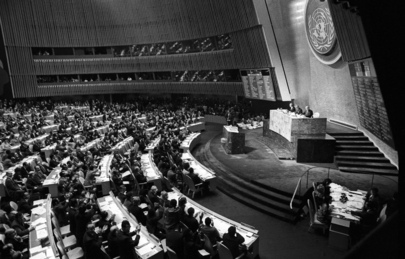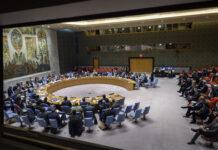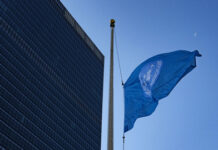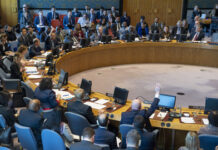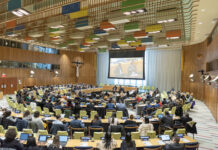This is the News in Brief from the United Nations.
Gaza crisis deepens as UN aid convoys face delays and obstacles
Amid reports of continued Israeli airstrikes in southern and central Gaza and more rocket fire into Israel from the enclave, UN teams said on Thursday they have been unable to deliver urgently needed aid to civilians in beyond central areas and further north for the past three days.
UN aid coordination office OCHA blamed the lack of distribution on “delays and denials” along with active conflict for.
Medicines that would have provided “vital support to more than 100,000 people for 30 days were unable to get through, as well as eight trucks of food for people who currently face catastrophic and life-threatening food insecurity,” OCHA said in a situation update.
The UN office explained that the security situation, access, transport and deconfliction remained “extremely challenging”, especially when it came to reaching hospitals in the northern governorates.
UN rights chief Türk shocked by Iran mosque bombing
To Iran now, and the UN’s top human rights official Volker Türk has expressed shock at a bomb attack that killed scores of people taking part in a public commemoration event in the south of the country.
Mr. Türk said in a social media post on X that those responsible for the double bombing near the Saheb al-Zaman mosque on Wednesday “must be held to account, in accordance with international standards”.
The UN rights chief’s condemnation echoed that of the UN Secretary-General following reports of the bloodbath in Kerman city, as crowds gathered to remember former top general Qasem Soleimani who was killed in 2020 in a US drone strike.
Eighty-four people including three children were reportedly killed when bombs went off near the General’s tomb.
No-one has yet claimed responsibility for the attack.
On World Braille Day, UN health agency joins dots for blurred vision fixes
It’s a staggering figure: more than one billion people suffer from vision impairment that could have been prevented or has yet to be addressed.
That’s according to the UN World Health Organization WHO which also pointed out that anyone whose eyesight is impaired is likely to be poorer and more disadvantaged than people with 20/20 vision.
To coincide with World Braille Day on 4 January in celebration of the organized patterns of raised dots that blind people use in order to read, WHO noted that vision problems often leave people with “a lifetime of inequality, poorer health and barriers to education and employment”.
Which is why the 2006 Convention on the Rights of Persons with Disabilities should be welcomed, the UN health agency said.
It explained that the Convention backed the promotion of Braille since it is “essential for education, freedom of expression and opinion, access to information and social inclusion.
UN programmes to help people learn Braille are ongoing, including in Afghanistan, where the refugee agency UNHCR has launched a programme offering Braille classes and mobility training to women.
Daniel Johnson, UN News.
Source of original article: United Nations (news.un.org). Photo credit: UN. The content of this article does not necessarily reflect the views or opinion of Global Diaspora News (www.globaldiasporanews.com).
To submit your press release: (https://www.globaldiasporanews.com/pr).
To advertise on Global Diaspora News: (www.globaldiasporanews.com/ads).
Sign up to Global Diaspora News newsletter (https://www.globaldiasporanews.com/newsletter/) to start receiving updates and opportunities directly in your email inbox for free.


